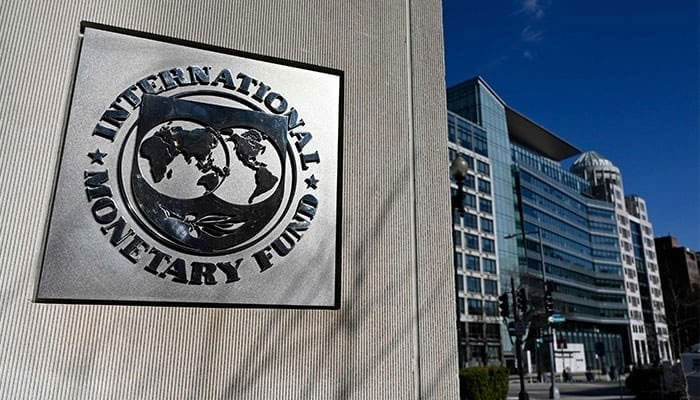IMF must learn from past mistakes: taxes kill growth
Taxes kill growth. Yes, there is an empirical relationship between taxes and economic growth. There is also a correlation between high taxation and lower GDP growth. In simpler terms, taxes have a negative impact on economic growth.
Argentina has had 22 IMF arrangements since joining in 1956. In the past decade, the Argentine government raised taxes in 2013, 2015, 2017, 2019, 2020, and 2021, coinciding with IMF programmes. Yes, correlation doesn't equal causation, and other factors must have played a role, but the most striking fact is that Argentina's GDP actually declined in seven out of thirteen years between 2009 and 2022. In 2020, GDP had plummeted by a sharp 9.9 per cent.
In May 2010 Greece received the first tranche of the IMF bailout of €20bn. In 2010, VAT rate was increased from 19 per cent to 23 per cent. In 2011, GDP went down by a sharp 10 per cent. Between 2010 and 2017, Greece introduced five new indirect taxes on goods and services. Property taxes were increased in 2014. In 2016, another increase raised the standard VAT rate from 23 per cent to 24 per cent. GDP actually declined in five out of eight years between 2012 and 2020. In 2020, GDP shrank by 9.9 per cent. Yes, these VAT increases were part of IMF bailout programmes.
Tunisia has had 11 IMF arrangements since joining in 1958. In May 2016, the IMF approved a four-year Extended Fund Facility (EFF) with the aim of boosting economic growth and creating jobs. In 2020, GDP contracted by 1.1 per cent. For the record, unemployment went up from 15 per cent in 2016 to 19.8 per cent in 2021.
Jamaica has had 11 IMF arrangements since joining in 1963. In 2016, the IMF approved a three-year Precautionary Stand-By Arrangement (PSBA). In 2020, GDP fell by 9.9 per cent although there was a rebound the following year with GDP returning to positive territory.
Over the past week, Pakistan and the IMF have been in negotiations for a new loan program. As per media reports, one of the key demands from the IMF is the imposition of an 18 per cent GST on petroleum products. Here’s the most likely scenario if additional taxes are levied on petroleum products: as the price of fuel increases, consumers will have less disposable income, leading them to cut back on spending in other areas, thereby reducing overall demand for goods and services.
Consequently, Pakistani businesses will produce less, hire fewer workers, and avoid investing in expansion, all contributing to lower GDP growth. Yes, higher transportation costs will reduce profitability, and business activity will most likely slow down.
Economic history has shown a clear correlation between higher taxes and slowed growth. In Pakistan, the sequencing of reforms should focus on rationalising the federal budget and aligning provincial budgets with the federal budget. Pakistan’s foremost priorities should be investment promotion and job creation.
-
 Meghan Markle’s Family Shares Important News Amid Estrangement
Meghan Markle’s Family Shares Important News Amid Estrangement -
 BAFTA, BBC, And Tourette’s Advocate John Davidson Issue Formal Statements For His Onstage Slur
BAFTA, BBC, And Tourette’s Advocate John Davidson Issue Formal Statements For His Onstage Slur -
 Kanye West's Malibu Beachfront Mansion Enters Controversy Again As Ex-employee Seeks $1M In Alleged Unpaid Wages
Kanye West's Malibu Beachfront Mansion Enters Controversy Again As Ex-employee Seeks $1M In Alleged Unpaid Wages -
 Tom Hanks To Lead Experimental Biopic About Distant Relative Abraham Lincoln
Tom Hanks To Lead Experimental Biopic About Distant Relative Abraham Lincoln -
 'CIA' Starring Tom Ellis Promises Fresh Take Beyond FBI Franchise
'CIA' Starring Tom Ellis Promises Fresh Take Beyond FBI Franchise -
 Congressman Tony Gonzales Faces Resignation Calls Amid Investigation
Congressman Tony Gonzales Faces Resignation Calls Amid Investigation -
 Royal Family Not Allowed To Play THIS Fun Game: ‘It Gets Too Vicious’
Royal Family Not Allowed To Play THIS Fun Game: ‘It Gets Too Vicious’ -
 Heidi Klum Exposes Harsh Modeling Rule She Faced While Expecting
Heidi Klum Exposes Harsh Modeling Rule She Faced While Expecting -
 US Women’s Hockey Team Skips State Of The Union After Gold Medal Win
US Women’s Hockey Team Skips State Of The Union After Gold Medal Win -
 Toronto Weather Forecast: Snow Storm Advisory Lifted After Icy Conditions
Toronto Weather Forecast: Snow Storm Advisory Lifted After Icy Conditions -
 How ‘deafness’ In Andrew Scandal Has Changed Monarchy ‘forever’
How ‘deafness’ In Andrew Scandal Has Changed Monarchy ‘forever’ -
 Gisele Bundchen Drops Postpartum Workout Secret She Calls A 'game Changer'
Gisele Bundchen Drops Postpartum Workout Secret She Calls A 'game Changer' -
 1 In 5 Teens Exposed To Unwanted Sexual Content On Instagram, Report Finds
1 In 5 Teens Exposed To Unwanted Sexual Content On Instagram, Report Finds -
 US Judge Aileen Cannon Issues Permanent Order In Trump Documents Case
US Judge Aileen Cannon Issues Permanent Order In Trump Documents Case -
 King Charles, Royals Are Not ‘bright’ Enough To Live In Mansions
King Charles, Royals Are Not ‘bright’ Enough To Live In Mansions -
 'Final Throw Of The Dice': Paramount Submits Highest Bid Offer To Warner Bros. In Last Round
'Final Throw Of The Dice': Paramount Submits Highest Bid Offer To Warner Bros. In Last Round




